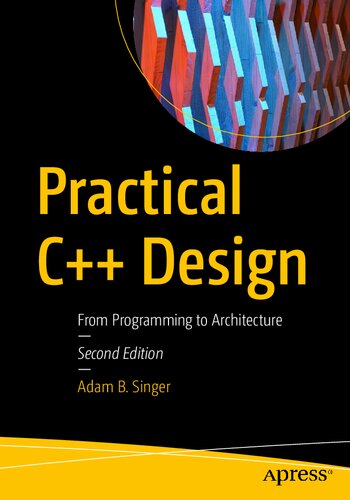

Most ebook files are in PDF format, so you can easily read them using various software such as Foxit Reader or directly on the Google Chrome browser.
Some ebook files are released by publishers in other formats such as .awz, .mobi, .epub, .fb2, etc. You may need to install specific software to read these formats on mobile/PC, such as Calibre.
Please read the tutorial at this link. https://ebooknice.com/page/post?id=faq
We offer FREE conversion to the popular formats you request; however, this may take some time. Therefore, right after payment, please email us, and we will try to provide the service as quickly as possible.
For some exceptional file formats or broken links (if any), please refrain from opening any disputes. Instead, email us first, and we will try to assist within a maximum of 6 hours.
EbookNice Team

Status:
Available5.0
29 reviewsGo from competent C++ developer to skilled designer or architect using this book as your personal C++ design master class. Updated for the C++20 standard, this title will guide you through the design and implementation of an engaging case study that forms the backdrop for learning the art of applying design patterns and modern C++ techniques to create a high quality, robust application.
Starting with a quick exploration of the requirements for building the application, you'll delve into selecting an appropriate architecture, eventually designing and implementing all of the necessary modules to meet the project’s requirements. By the conclusion of Practical C++ Design, you'll have constructed a fully functioning calculator capable of building and executing on any platform that supports both Qt and C++20. Access to the complete source code will help speed your learning.
Utilize the Model-View-Controller pattern as the basis for the architecture of the calculator; the observer pattern to design an event system; the singleton pattern as you design the calculator’s central data repository, a reusable stack; the command pattern to design a command system supporting unlimited undo/redo; the abstract factory pattern to build a cross-platform plugin infrastructure for extensibility; coroutines to implement a command line interface with a lazy tokenizer; and more.
After reading and using this book, you’ll have begun the transition from C++ programmer to architect.
What You Will Learn
Who This Book Is For
The experienced C++ developer ready to take the next step to becoming a skilled C++ designer.